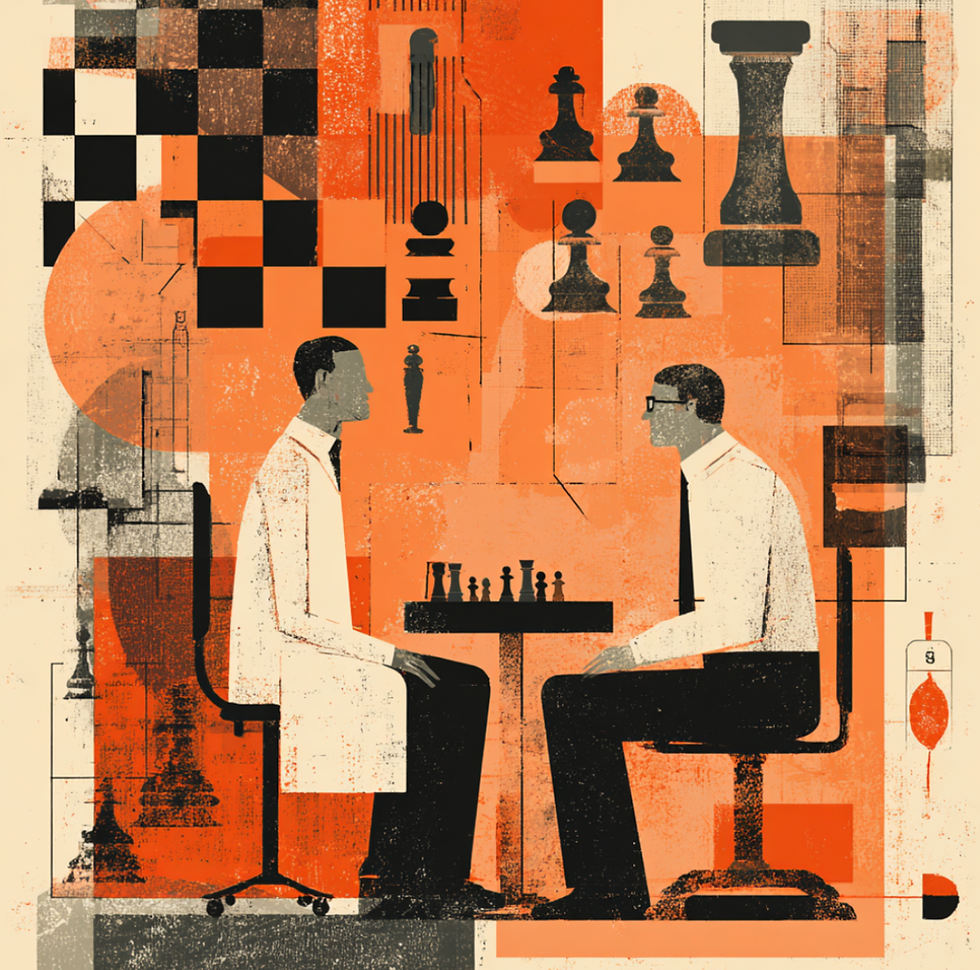How to stay human in a regulated profession: Dentistry under occupation - a guest post by Dr. Roy Bennett
- Chris Barrow

- 1 hour ago
- 3 min read

As I’ve grown through this profession, I’ve come to reflect on our regulatory and professional systems — the GDC, the NHS, the CQC, the insurers, the targets, the policies — all well-intentioned, all necessary in their way, but all capable of quietly occupying our inner world as clinicians.
When I graduated ( I have 5 numbers in my GDC reg ! ) , “professionalism” meant integrity, competence and compassion.
Now it can feel like an ever-expanding checklist.
We must record our CPD, reflect on every complaint, document every consent, log every radiographic justification, demonstrate reflection on our reflections.
None of this is wrong — in fact, much of it protects both patients and us — but it subtly shifts the focus.
The gaze turns inward, not toward the patient, but toward compliance.
And soon, without quite meaning to, we begin to practise under occupation.
An ‘occupying power’ is not necessarily cruel — it is simply pervasive.
It lives in the language we use, in the assumptions we stop questioning.
The same can happen in dentistry.
When “care” becomes “service provision,” when “patients” become “cases,” when “professionalism” becomes “risk management,” we start to speak the language of the occupier.
“fitness to practise,” “duty of candour,” “compliance framework.”
They sound objective, neutral — but they carry power.
They tell us what kind of people we are expected to be.
And that power shapes not only how the public sees us, but how we see ourselves.
It’s easy to internalise those voices: “Don’t take risks. Don’t show weakness. Don’t admit uncertainty.”
But dentistry, at its heart, is full of uncertainty — the biology, the behaviour, the psychology, the art of the thing.
To deny that is to deny our humanity.
I believe that within every system there must be a place for the human voice — the small, stubborn insistence on meaning and empathy.
"resistance ought to take place within the barracks as well as outside.”
For us, that means finding space for humanity within the regulatory framework, not just complaining about it from the sidelines.
It means taking reflection seriously — not as a bureaucratic exercise, but as a genuinely moral one.
It means asking: How do I stay present, kind, and authentic in a profession that sometimes feels like paperwork first, people second?
When we truly reflect, we reclaim our freedom — even inside the barracks.
In dentistry, we can forget the present tense.
Our days are filled with checklists, targets, deadlines, audits — we’re always preparing for inspection or documentation.
But the real work happens in the now:
when a patient sits down afraid,
when a nurse quietly steadiest the patients hand
when you listen to a story you didn’t need to hear but did anyway.
That is where the moral life of dentistry lives.
Not in the paperwork, but in the presence.
Our responsibility is not only to comply, but to participate.
To be thoughtful citizens of our profession.
To write, to speak, to teach, to model integrity for our colleagues and students.
In that sense, reflection becomes resistance — the quiet, daily act of thinking for oneself.
So what would it look like if we stopped thinking of the regulator as an occupying power?
Perhaps we would start to see it as a shared framework, one that belongs to us as much as to them.
Rules can be both boundaries and bridges.
When we practise with genuine empathy and transparency, regulation becomes less about control and more about trust.
We can apply that to dentistry.
Within the same system that monitors and measures us, we can practise compassion, humility, and authenticity.
We can resist cynicism.
We can choose to care deeply even when no one is watching.
The regulator does not have to be an occupying power.
It can be a collaborative one — but only if we keep our voices alive within it.
So perhaps the question for us all is not “How can we escape regulation?”
but “How can we stay human inside it?”
That’s where our true professionalism lives —
not in the rules, but in the grace with which we live them.
Roy Bennett is a well-known sedation trainer, Mellow Dental trustee, Director at The College of General Dentistry and still at the sharp end as an associate, one day a week.

.png)



Comments